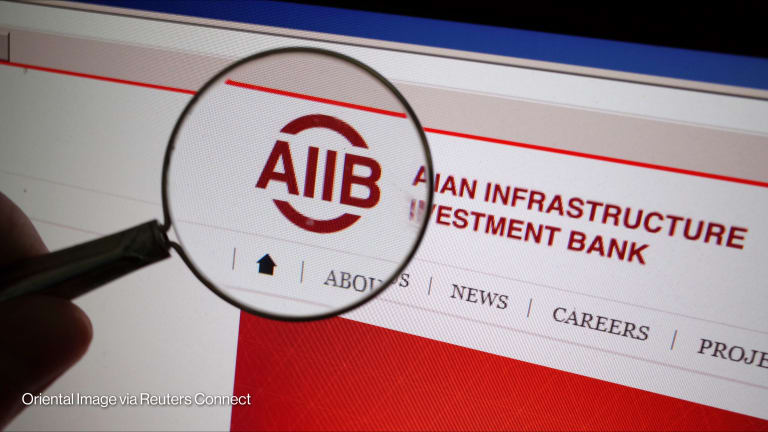
No one knew what to expect in 1993, when the World Bank established the Inspection Panel and became the first international financial institution to create an independent accountability mechanism to investigate community complaints of harm caused by development projects.
But in the quarter century since, the panel has carved out multiple legacies.
The panel’s fundamental mission has become its most enduring legacy — giving a voice to the most vulnerable.
—Considered at the time to be a breakthrough in international law, the panel has served as the prototype for international financial organizations to hold themselves accountable. Today, nearly 20 other similar bodies exist — including at most major development banks — all modelled in some way on the World Bank’s pioneering effort. Indeed, the panel recently hosted the 15th annual meeting of the Independent Accountability Mechanisms Network, which it helped create.
Among those mechanisms, the panel took the lead in issuing guidelines to address retaliation against complainants. Those 2016 guidelines help to identify and monitor potential risks to those who request investigations, adopt preventive measures, and respond appropriately when retaliation does occur. Other mechanisms have since issued their own guidelines, or are in the process of doing so.
The mere existence of the panel has changed the World Bank for the better. Through its work, adversely affected people have been helped and projects have been improved.
The panel’s fundamental mission has become its most enduring legacy — giving a voice to the most vulnerable. To date, the panel has received 128 requests for inspection from communities in more than 50 countries and is conducting its 36th investigation of alleged harm resulting from the World Bank not complying with its policies and procedures.
What is the World Bank Inspection Panel?
The Inspection Panel is an independent accountability mechanism created in 1993 by the World Bank’s board of executive directors. It aims to investigate complaints submitted by people who believe they are being harmed due to the bank not following its policies and procedures in projects that it funds. Since its inception, the panel has received 128 complaints and investigated 36 of them.
The panel is independent of bank management and reports directly to the board. It consists of three members appointed by the board for five-year, nonrenewable terms and has a secretariat that provides operational and administrative support. For investigations, the panel hires independent experts to ensure objective and professional assessments of the issues.
To find out more about the Inspection Panel, click here.
Through the Inspection Panel, people unintentionally harmed by the bank’s work can raise their issues at the institution’s highest levels — the board of executive directors and senior management, right up to the president.
As World Bank Group President Jim Kim said at an event last month to mark the panel’s 25th anniversary: “The Inspection Panel has shown that it’s possible to democratize the oversight and accountability process, and hold ourselves accountable to the people we serve.”
And while the panel’s role is first and foremost to provide a voice to affected communities, its legacy goes far beyond its cases and investigations. The lessons it provides the World Bank — most recently on the issue of gender-based violence in projects — allow the bank to adjust its operations as needed and are critical to making the institution stronger.
The panel’s identification of lessons will become more relevant as the bank increases its work in countries affected by fragility, conflict, and violence, where project supervision can be difficult.
Albie Sachs, a former judge on South Africa’s Constitutional Court who was the anniversary event’s keynote speaker, said the panel has “changed the very culture and methodology of the World Bank,” an evolution that leads to better project outcomes.
“It’s not just the cases where there are complaints. It’s the matters now that don’t end up in complaints because new routines, new methodology has evolved,” Sachs said. “For me, that’s a huge achievement of what the panel has done, not just for the immediate beneficiaries but for the bank.”

With the bank’s board recently formalizing the panel’s advisory role, there certainly will be other lessons to identify as the panel begins its second quarter-century, and challenges as well.
In October, the World Bank began implementing its Environmental and Social Framework, 10 new standards to replace existing safeguards. For the next several years, the panel will still be investigating allegations of noncompliance relating to projects approved under the old system, as well as complaints about projects operating under the new framework.
And since the framework utilizes a borrowing country’s environmental and social framework, that could make compliance review more complicated as the panel investigates the bank, not the borrower.
So the panel will need to continue to adapt to new issues and circumstances.
Regardless, we’re confident that the panel, as it has for 25 years now, will be there to carry forward with its mission to enhance accountability and transparency at the World Bank and contribute to more effective development outcomes for years to come.
To read more about the World Bank Inspection Panel’s history and legacy, click here.










